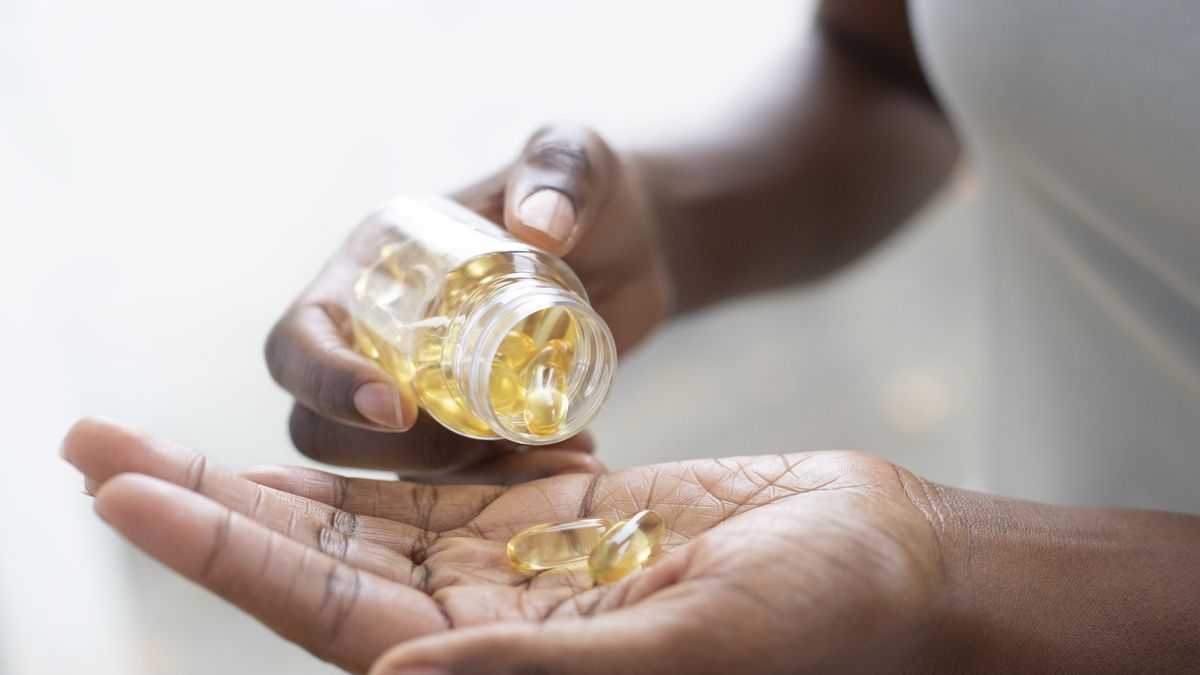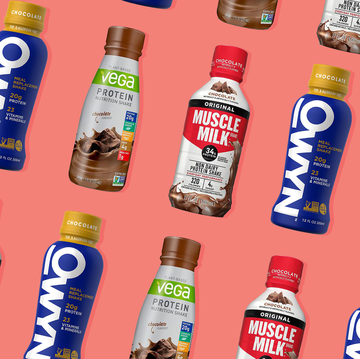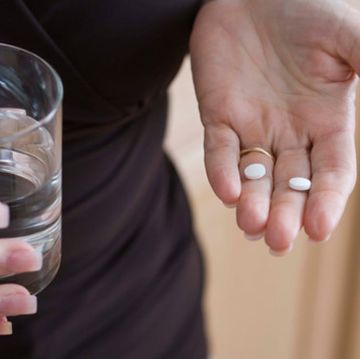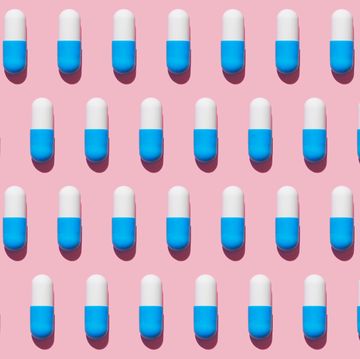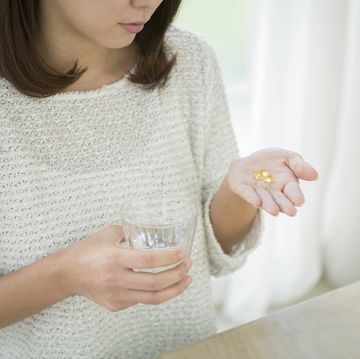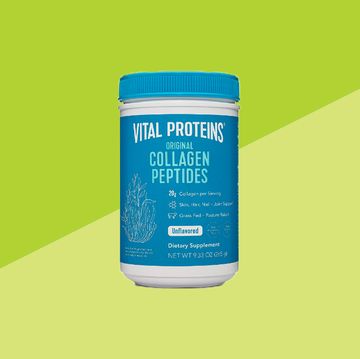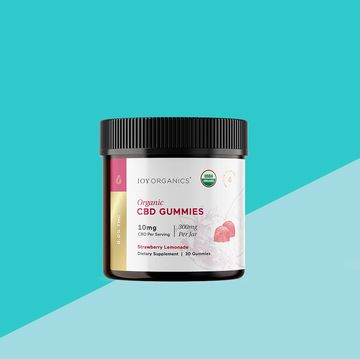If you’re looking to give your health and well-being a substantial boost, you might want to consider glutathione—often referred to as GSH.
“Glutathione is a molecule that is found in each and every cell in the body that is composed of three amino acids [cysteine, glutamic acid and glycine] coming together to make a simple protein,” says Nayan Patel, Pharm.D., adjunct faculty at the University Of Southern California School of Pharmacy and author of The Glutathione Revolution: Fight Disease, Slow Aging & Increase Energy. “And here’s what it does—it is an antioxidant that quenches all of the free radicals before removing them from your body.”
In fact, Patel refers to glutathione as “the most important antioxidant in the world” because it has the capacity to neutralize the toxic chemicals we’re exposed to on a regular basis, such as heavy metals, cosmetics, and pollution. Yet starting around age 25, the body’s natural ability to produce glutathione begins to wane while these modern-day environmental stressors further deplete our levels.
“When the oxidative stress [which is defined as an imbalance that leads to cell and tissue damage] becomes too high in the body, then we start seeing all kinds of diseases: Obesity, diabetes, hypertension, heart disease, metabolic disorders—we can even go as far as cancer,” he states.
As for the good news, we can increase levels of this powerhouse antioxidant in a variety of ways. “Glutathione is naturally found in protein (like beef and poultry), greens (like kale and spinach), and in sulfur-rich cruciferous veggies (such as broccoli, cauliflower, and Brussels sprouts),” says Tasneem Bhatia, M.D. (“Dr. Taz”), founder and medical director of CentreSpringMD in Atlanta and author of Super Woman RX. Consuming foods high in vitamin C, including citrus fruits, kiwis, and strawberries, can also enhance glutathione levels, she adds.
Supplementation is another option. A randomized controlled trial published in the European Journal of Nutrition found that daily consumption of 500-1,000mg of glutathione supplements can be effective at increasing the storage of GSH. There’s also a topical patented antioxidant spray Dr. Patel created after years of clinical research.
“We discovered a water-based technology that delivers glutathione molecules straight to the blood cells and can be used by the body immediately,” he explains. “I am on a crusade to change people’s lives.”
Below we highlight eight proven health benefits of this master antioxidant.
1. Reduces oxidative stress
According to an article published in the journal Nutrients, glutathione was found to be a “promising and exciting” treatment to combat cell and tissue damage. This research showed that GSH supplementation of amino acids (including L-glycine) and micronutrients (including vitamin C, vitamin E, and magnesium), as well as specific dietary patterns (vegetarian, the Mediterranean diet, and the DASH diet) had the potential to raise glutathione concentrations, which in turn slowed the rate of tissue deterioration. “Glutathione can reduce oxidative stress in the body and, therefore, can decrease the risk of cancer,” states Dr. Taz.
2. Helps improve insulin levels
Higher levels of GSH can cause less fat stored in the belly, which can lead to a lower risk of certain types of diabetes, explains Dr. Taz. Researchers at Baylor College of Medicine in Houston combined studies of older adults and older mice since both groups were glutathione-deficient, which is a common side effect of aging. Less than two weeks after the volunteers were instructed to consume foods with the amino acids cysteine and glycine, such as lentils and sunflower seeds, their ability to burn body fat jumped to a rate similar to the average young adult. (And yes, the mice had the same outcome.)
3. Can lessen side effects of type 2 diabetes
Study authors gathered a small group of sedentary adults with uncontrolled type 2 diabetes, along with “severely deficient” glutathione levels, and infused them with cysteine and glycine dietary supplements over a two-week period. The results, which were published in the journal Diabetes Care, found that supplementation restored GSH levels and lowered oxidative damage caused by high glucose numbers.
4. Decreases risk of heart disease
In an animal study conducted at the University of Michigan Health System, scientists fed a grape-enriched diet to rats with hypertension (chronic high blood pressure) who were at an elevated risk of heart failure. After 18 weeks, the authors discovered that the antioxidants in the fruit “turned on” antioxidant defense pathways, which ultimately increased the activity of genes that boost the production of glutathione. Furthermore, the rats experienced fewer occurrences of heart muscle enlargement, along with better diastolic function (the bottom number in a blood pressure reading that indicates how much pressure the blood is exerting against the artery walls with every heartbeat).
5. May help liver function
Glutathione can be an effective remedy for a liver that’s been damaged by excessive alcohol use, says Dr. Taz. Medical researchers from Italy treated adults with either alcoholic or nonalcoholic fatty liver disease with an IV drip filled with high doses of GSH. Not only did both groups show “significant” improvements in bilirubin levels (a substance made in the liver during the normal process of breaking down red blood cells that a healthy liver regularly eliminates) months after the trial ended, they also saw a reduction of malondialdehyde, a marker of cell damage in the liver.
6. Helps prevent obesity
“If the body is low on glutathione, the environmental toxins will metabolize in the fat tissues, which means the body will hold onto excess weight,” says Dr. Patel. According to a study published in the journal Experimental and Therapeutic Medicine, adults who were diagnosed with metabolic syndrome—a number of health conditions (such as high blood pressure, high blood sugar levels, high cholesterol and a large waistline) that can raise the risk of heart disease, diabetes and stroke, as defined by the National Institutes of Health—and who initially tested with higher levels of glutathione showed greater reductions in body weight and body fat percentage after following a personalized healthy eating plan for six months.
7. May aid in fighting autoimmune issues
“So if glutathione is affecting all of the metabolic disorders, then it includes autoimmune conditions, too,” says Dr. Patel. Research published in the journal Autoimmunity Reviews found a strong association between oxidative stress and apoptosis—a controlled process of cell death—in patients living with lupus, an autoimmune disease where the immune system attacks healthy cells and tissues by mistake. And depletion of glutathione was discovered to be “closely related” to the destruction of cells.
8. Could help battle COVID-19
Scientists at Baylor College of Medicine compared blood samples of healthy adults before the pandemic to those the same age who were hospitalized with COVID-19—and the patients with the virus (the youngest being 21) showed significantly increased levels of oxidative stress and oxidant damage, as well as markedly reduced levels of glutathione. Their findings, which were published in the journal Antioxidants, suggest supplementing those who test positive for COVID-19 with a combination of glutathione precursors (which was shown in previous research to improve these levels, along with reducing inflammation) may be an effective treatment. The researchers are encouraging future investigations with COVID-19 patients.
Glutathione side effects and risks
The FDA (Food & Drug Administration) says glutathione is “generally recognized as safe.” However, it’s important to keep in mind that the National Institutes of Health (NIH) states that the majority of supplements contain active ingredients which could cause a reaction.
One study found some possible interactions among males who took glutathione as a skin treatment via an IV drip, including liver issues or infertility, which is why the FDA warned the public of the dangers of an injectable skin lightening agent. Another study (where patients were given both GSH and the oxidized form GSSG) showed that a very small percentage of participants dealt with either temporary liver issues or a rash.
“Most glutathione studies that are done used either IV or oral glutathione, and the dose used commonly could be anywhere from 500 milligrams to 2 grams,” explains Dr. Patel. “This is because the absorption is rather poor and it gets broken down in various amino acids that might have a different side effects profile.”
Dr. Taz states that people who are sensitive to sulfa may break out in a rash from glutathione. Dr. Patel concurs and adds that “every once in a while” people who use his low-dosage (100 or 175 milligrams) topical treatment will experience “a minor rash that quickly dissipates.” These individuals should lower the dose to better suit their needs, he advises.
Of course, if you believe you’re experiencing side effects of glutathione, be sure to reach out to a medical professional.
Dietary supplements are products intended to supplement the diet. They are not medicines and are not intended to treat, diagnose, mitigate, prevent, or cure diseases. Be cautious about taking dietary supplements if you are pregnant or nursing. Also, be careful about giving supplements to a child, unless recommended by their healthcare provider.

